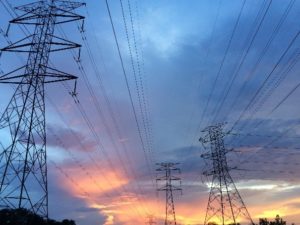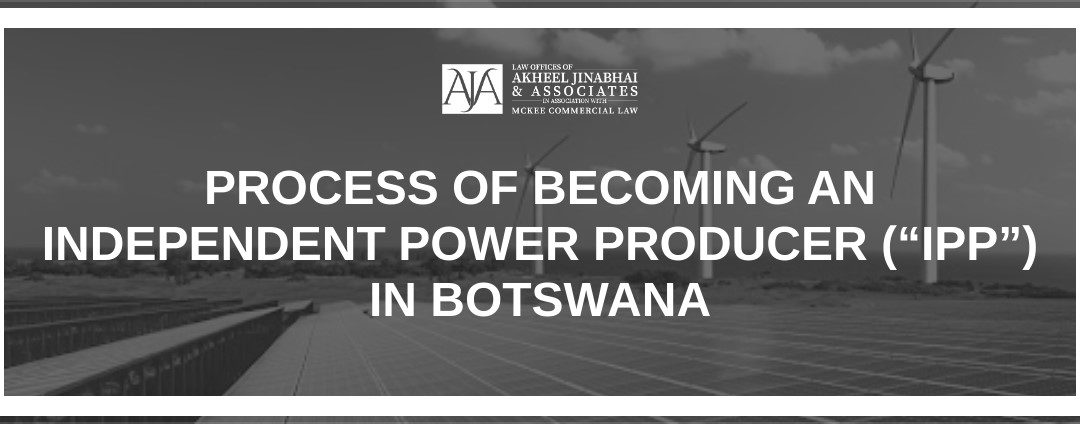Botswana is facing an energy shortage due to its generating capacity being insufficient to meet current demand. This will only get worse in future as the economy and population grow. Currently the country’s electricity demand stands at 600 MW but is expected to reach 936 MW by 2025. This poses a significant risk to Botswana’s future development and its capacity to attract investors, who look at power security amongst other things when they make investment decisions. To ensure security of the energy supply in Botswana, the private sector has of recent been invited to participate in the generation of electricity. This participation will be achieved through the licensing of independent power producers (IPPs) under Section 3 of the Electricity Supply Act as read with Section 35 (1) (a) the Botswana Energy Regulatory Authority Act (BERA Act).

In order to obtain a generation license, authorization from Botswana Energy Regulatory Authority (BERA) (“the “Authority”) needs to be made since they are the issuing Authority of such license.
The applicant needs to detail their name, address, a description of the activity they wish to carry out, the geographic area in which the activity is to take place. Finally, evidence of the applicants financial and technical capability to undertake the activity and ownership or use of rights for the facilities to be used in the generation. The Authority shall within 14 days of the receipt of application issue an acknowledgement thereof. If there is any additional information required, the Authority will request the same from the Applicant. Where necessary, the Authority shall give notice in the Gazette and two newspapers, to allow interested parties to comment on the said application for a generation license. In conclusion to the process, the applicant shall be informed of the Authority’s decision to issue or deny a license within 14 days from the date the actual decision was made. The application is made simultaneously with that of authorization for significant infrastructure which is sought from the Authority respectively.
The application for consent to erect such infrastructure must inter alia set out the location at which the proposed infrastructure will be constructed and the nature of the applicants’ rights to any land upon which the infrastructure will constructed. The application must be accompanied by the prescribed fee and contain any additional information required by the Authority. Where such infrastructure is deemed to have the potential of affecting any persons, or surrounding communities, the Authority will publish a notice in the most appropriate manner to allow for comments before authorization can be granted. If there are any objections raised in response to the notice, these shall be taken into consideration by the Authority in the assessment of the application.

To date, BERA has already awarded three licenses to IPPs which in terms thereof will sell their generated electricity to the state-owned power utility (Botswana Power Corporation -BPC ). The sale of electricity to BPC will be undertaken pursuant to power purchase agreements entered between BPC and the IPPs which will set out the commercial terms under which electricity will be generated by the IPP and sold to BPC. These PPA’s will include inter alia terms covering the generation, scheduling, dispatch and transmission of the electricity to be supplied, as well as terms dealing with the tariff to be charged, interconnection risk, force majeure, and dispute resolution.
The opening up of the energy sector in Botswana presents a great opportunity for the private sector to invest into the generation and supply of electricity in Botswana. The establishment of an IPP and the licensing thereof is however not an easy process and can be risky without the support of an attorney well versed in the complexities of the energy sector and its legislation. Akheel Jinabhai & Associates (in association with Mckee Commercial Law) has the requisite skills and experience to provide direction and legal support on all energy related matters. Mark Mckee, a partner in the legal department has extensive experience in this sector, and has been involved in most of the major energy projects in Botswana.


